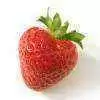-
Welcome to Celiac.com!
You have found your celiac tribe! Join us and ask questions in our forum, share your story, and connect with others.
-
Celiac.com Sponsor (A1):
Celiac.com Sponsor (A1-M):
-
Get Celiac.com Updates:Support Our Content
Semi-Elimination Diet
-
Get Celiac.com Updates:Support Celiac.com:
-
Celiac.com Sponsor (A17):
Celiac.com Sponsor (A17):
Celiac.com Sponsors (A17-M):
-
Recent Activity
-
- Teaganwhowantsanexpltion posted a topic in Introduce Yourself / Share Stuff0
A little about me and my celiac disease
I was diagnosed at 6 after having severe stomach pain after eating white bread or any kind of gluten my sister had one done aswell I was scared for the biopsy but thats bc the gas mask thing but now that I am a 14yr old female struggling with severe chronic pain making my body ache for no reason making it hard to sleep and do the things I love like playing... -
- trents commented on Scott Adams's article in Winter 2026 Issue2
Celiac Disease and Longevity: Can Treatment and Healing Improve Long-Term Survival?
Welcome to the celiac.com community, @Paulyw! So, we need some clarification here because your post is a little confusing. Am I correct in assuming that before you ate the food offered by your client, you were already aware that gluten-containing foods made you ill? And am I correct in assuming that you have never had any formal testing done...- autoimmune disease
- celiac disease
- (and 7 more)
-
- Paulyw commented on Scott Adams's article in Winter 2026 Issue2
Celiac Disease and Longevity: Can Treatment and Healing Improve Long-Term Survival?
Hi-im new to this forum so thankyou for accepting me. I have had dietary issues for at least 12 years. Last summer i had a terrible episode when a client made me lunch-2 toasties and 2 slices of homemade cake. I am a landscape gardener. I was stupid to drop my guard and eat the food-not wanting to offend the kindness. Within 1 hour i...- autoimmune disease
- celiac disease
- (and 7 more)
-
- xxnonamexx posted a topic in Gluten-Free Foods, Products, Shopping & Medications0
Healthy Gluten Free Foods low sugar that you found?
I noticed eating gluten-free or CGF foods have higher sugar and sodium some. No added sugar protein bars I found better with plant fiber. I wanted to know what are you go to besides whole fruits/veggies that you find are healthy for you where you can feel eating normal without hurting yourself or health. I was looking into subscription based like Thrift to... -
- Jmartes71 replied to Jmartes71's topic in Gluten-Free Foods, Products, Shopping & Medications2
Medications
Thankyou because I met up with K B with well known bay area hospital once and she said she knows I don't like to take meds, I said thats incorrect, I have issues.Thats the one that said I was deemed " unruly " when she admitted I was celiac when I asked why am I going through this.
-







Recommended Posts
Archived
This topic is now archived and is closed to further replies.